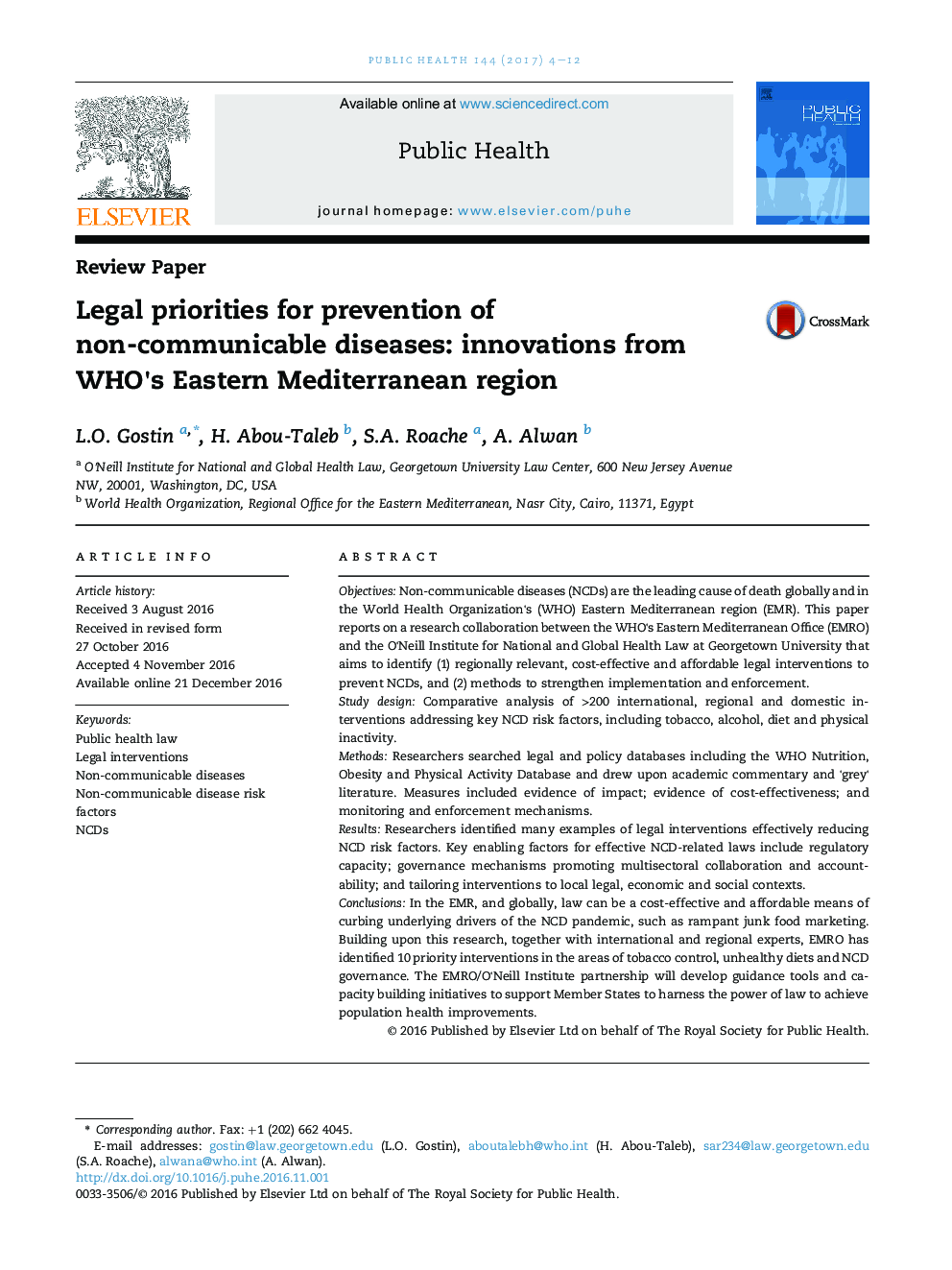| کد مقاله | کد نشریه | سال انتشار | مقاله انگلیسی | نسخه تمام متن |
|---|---|---|---|---|
| 5122786 | 1487199 | 2017 | 9 صفحه PDF | دانلود رایگان |
- Law can be a cost-effective and affordable tool to reduce non-communicable disease (NCD) risk factors.
- Legal interventions must be adapted for local legal, social and economic contexts.
- Good governance, especially multisectoral collaboration, supports effective NCD prevention.
- Enabling factors for NCD laws include regulatory capacity and robust public and civil society support.
ObjectivesNon-communicable diseases (NCDs) are the leading cause of death globally and in the World Health Organization's (WHO) Eastern Mediterranean region (EMR). This paper reports on a research collaboration between the WHO's Eastern Mediterranean Office (EMRO) and the O'Neill Institute for National and Global Health Law at Georgetown University that aims to identify (1) regionally relevant, cost-effective and affordable legal interventions to prevent NCDs, and (2) methods to strengthen implementation and enforcement.Study designComparative analysis of >200 international, regional and domestic interventions addressing key NCD risk factors, including tobacco, alcohol, diet and physical inactivity.MethodsResearchers searched legal and policy databases including the WHO Nutrition, Obesity and Physical Activity Database and drew upon academic commentary and 'grey' literature. Measures included evidence of impact; evidence of cost-effectiveness; and monitoring and enforcement mechanisms.ResultsResearchers identified many examples of legal interventions effectively reducing NCD risk factors. Key enabling factors for effective NCD-related laws include regulatory capacity; governance mechanisms promoting multisectoral collaboration and accountability; and tailoring interventions to local legal, economic and social contexts.ConclusionsIn the EMR, and globally, law can be a cost-effective and affordable means of curbing underlying drivers of the NCD pandemic, such as rampant junk food marketing. Building upon this research, together with international and regional experts, EMRO has identified 10 priority interventions in the areas of tobacco control, unhealthy diets and NCD governance. The EMRO/O'Neill Institute partnership will develop guidance tools and capacity building initiatives to support Member States to harness the power of law to achieve population health improvements.
Journal: Public Health - Volume 144, March 2017, Pages 4-12
